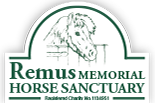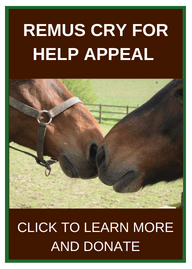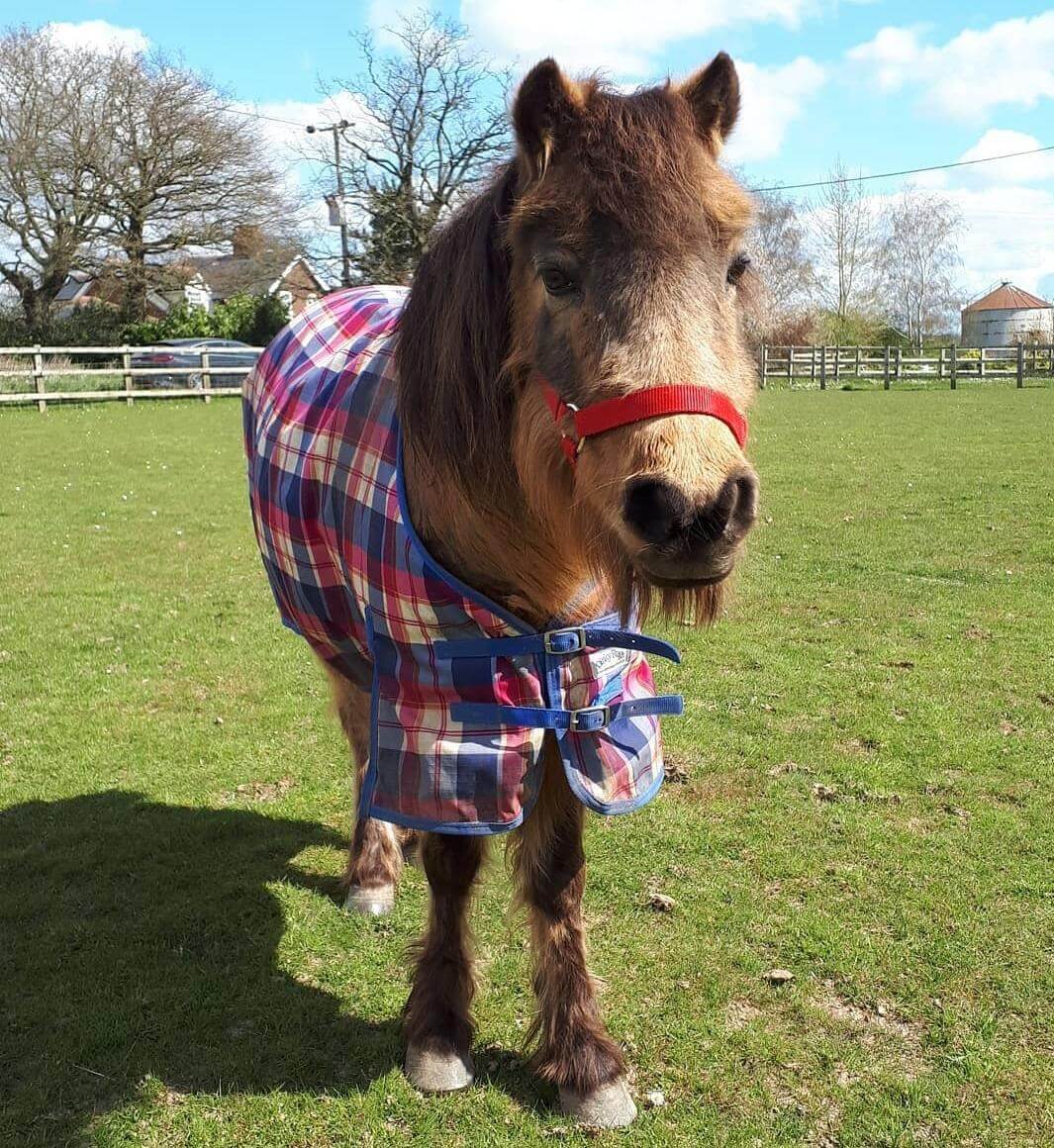
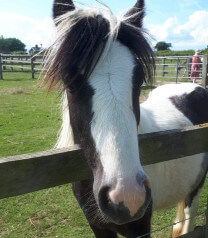
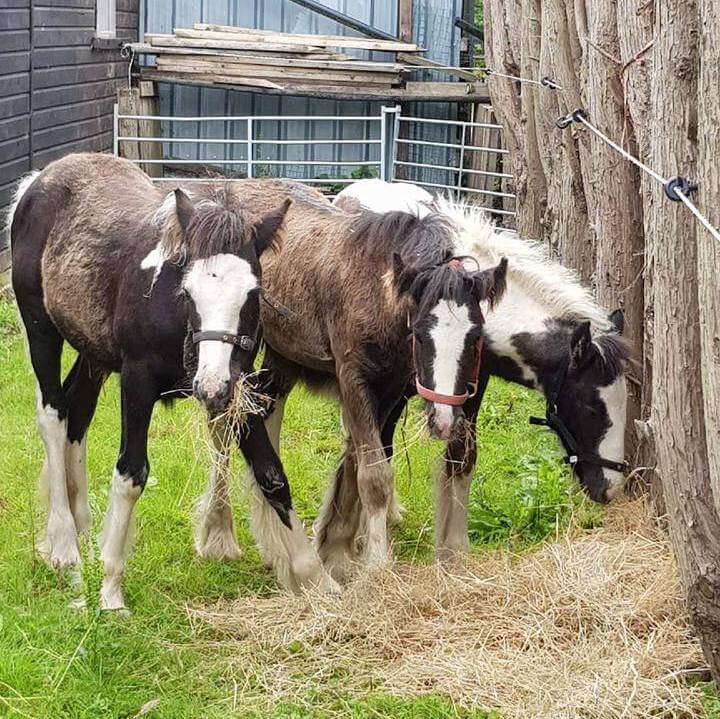
Turn up the Turnout
With the long nights drawing in, and a sudden shift to the colder weather, it’s easy to see how we might be tempted to reduce turnout time for our beloved horses and ponies – particularly in favour of a warm and cosy stable! But a recent study has shown that longer turnout could actually reduce the risk of equine injury.
The benefits of turnout have long been recognised. Not only does the constant roaming contribute to good health and fitness, excellent circulation, and reduce the risk of Colic, but the companionship associated with being outdoors and part of a herd is said to prevent boredom and reduce stress-related behaviour.
Our Remus residents spend much of their days wandering the pastures with their pals, as well as being supported by our environmental enrichment programme. We have always recognised the importance of providing our horses with the opportunity to behave as naturally as possible.
But now a six-year study from Centenary University Equestrian Center in New Jersey, has shown that horses turned-out for more than 12 hours per day, had a massive 25% lower instance of soft tissue injuries. The research across 146 non-elite performance horses was inspired by the lead researcher’s own veterinary practice observations. Jesslyn Bryk-Lucy noticed that horses who had a more natural, outdoor lifestyle seemed to require less veterinary care.
Scientists believe there could be a number of reasons behind the findings of this research. Horses may have benefited from increased conditioning of the tendons and ligaments from simply being in a more natural environment, or it could be related to change in behaviour caused by longer turnout.
There is undoubtedly further research to be done in this area, but this study goes one step further in demonstrating that horses are happiest and healthiest outdoors!
You can read more about the findings on Horse & Hound here.
As you can imagine, our costs for the animals increase significantly during the winter. If you are able to make a donation or perhaps purchase a treat for one of them, it would be massively appreciated!
Winter is here: let’s get ready for spring!
As we find ourselves in another Lockdown here in England, you’ll probably have noticed all the attention has swiftly turned back to exercise and keeping fit! Cue the return of Joe Wicks, online yoga and home gyms being dusted off once again. One key difference between the last lockdown and this one is the unlimited exercise allowed outdoors.
While some restrictions remain on what we can do with our horses, this is also the time of year that experts warn about spring obesity. It may seem a long way off, but we’ll be back to too much grass in no time. What we do now to keep our horses in good shape throughout winter will help them to go into spring at a healthy weight.
One of these actions is, of course, regular exercise, but for those non-ridden and retired equines just like ours here at Remus, sensible feeding is also very important to help them shed any unnecessary pounds.
A recent article in Horse & Hound outlines some important points; from understanding that winter grass does still contain calories and should be rationed if appropriate, to soaking hay to reduce sugar content.
Winter is tough for everyone but making small tweaks to your horse’s routine and management will help him stay safe and healthy into the new year.
Read Horse & Hound’s article in full here.
If you’d like to help with our animals food over winter, please visit our online shop or make a donation.
Keeping our horses and ponies safe this winter
The New Year generally brings colder weather and, as well as giving top class care to our Sanctuary residents, there are many more horses and ponies out there who are not so lucky and who we also need to keep an eye on.
The horse welfare crisis in the UK has been escalating for many years and our countrywide Welfare Watch aims to deliver assistance to horses in crisis in and around Essex and the South East of England. At this time of year, we struggle to respond to all of the reports we receive from members of the public; we just cannot physically be everywhere we are needed – and it comes at great cost! Will you donate to our Winter Feed Appeal?
We’ve put together this simple five-step checklist, designed for everyone to refer to before contacting us, so that we can all work together to help more horses and ponies at this time of year. Why not print a copy and save it to hand?
- Keep safe yourself. This is the most important thing: first of all, horses can be unpredictable and so you must always put your own safety first, secondly if you don’t know the owner of the land, you could be trespassing.
- Make yourself aware of the Five Freedoms (see below) to help you decide the nature of the problem.
- Collect information about the horse(s) you are concerned about and fill in our online form. The form will ask you for:
- The nature of the problem in line with the Five Freedoms
- Supporting photographs, if possible, to demonstrate the nature and scale of the problem and so that we can prioritise the visits
- Horse(s) details including how many, gender, breed, colour and age (if known) and also horse(s) owner’s details, if known
- The landowner’s details, if known
- The location of the horses
- Your contact details
- If it is an emergency situation, contact the RSPCA immediately on 0300 1234 999.
- If it is safe to do so, take the horse(s) some hay and water until further help is sought.
The Five Freedoms
There are many reasons why a horse may be distressed or need assistance. We’ve chosen to align our Welfare Watch with the ‘Five Freedoms’ identified by The Animal Welfare Act 2006, which enshrines the animal owner’s ‘Duty of Care’ in British Law:
- Freedom from hunger or thirst – the animal has little or no access to fresh water and/or food.
- Freedom from discomfort – the animal does not have somewhere to lie down or gain shelter or is exposed to extreme weather conditions.
- Freedom from pain, injury or disease – the animal clearly shows disease, an untreated injury or perhaps severely overgrown hooves.
- Freedom to express (most) normal behaviour – the animal is tethered incorrectly and/or does not have sufficient space or proper facilities and living conditions.
- Freedom from fear and distress – abandoned animals, those subject to dog attacks, low flying aircraft, or similar, or those suffering from any of the above.
Remember, it is really important that you send us photographs of the horses, ponies or donkeys in need so that we can prioritise our visits and their care.
Download the form here.
Coping with fireworks
For any horse owner, Fireworks Night is a worry. However, celebrations now tend to go on for two or even three weeks and are certainly not restricted to the one night. Here at Remus, our residents are kept as calm as possible during any nearby displays. They’re no doubt helped by the holistic care and therapies we provide all year round, but of course nothing can really prepare any animal for the noise or flashing lights.
Thankfully, following more than 307,000 people signing one petition, change is happening and a report by the Petitions Committee was released on 5th November. This report comes after an inquiry into the impact of fireworks on humans and animals, and calls on the government to limit the number of displays through a system of permits, review noise levels and promote the responsible use of fireworks.
Meanwhile, an owner’s video of a firework display over her stable yard went viral online last week with what she described as sounding like a “war zone”, and there have been other stories in the press of shocking injuries to distressed horses and ponies.
Hopefully for our horses, ponies and all other animals who are affected, change will come. In the meantime, try to keep your horses’ routines as familiar as you can to reduce stress and make sure their stable and field environments are safe. If you know fireworks are going to be set off, you should stay with your horse, but always be aware of your own safety.
You can read more about the Petitions Committee report at: https://www.yourhorse.co.uk/news/articles/bang-out-of-order-rspca-welcomes-new-fireworks-report
Keeping Your Horse’s Teeth Healthy
We’ve all heard the expression, ‘getting a little long in the tooth’. Of course, it’s an alternative way of saying someone’s getting old! Horses’ teeth grow for much of their life, and wear between 2mm and 3mm a year, as a result of them happily chewing and grinding their food. It’s important that food is broken down properly in the horse’s mouth, as it allows the gut to digest it fully and therefore avoid problems such as weight loss or colic.
Horses are natural trickle feeders, typically eating for up to 18 hours a day, but with modern day winter stabling, this isn’t always the case and we need to be aware of problems that may arise.
The team here at Remus dealt with a lovely pony called Prince, who died within days of us taking him in. We found him in a field rugged up and with food but emaciated and with a huge tooth abscess. His owner loved him but was not aware that, despite feeding him, he was quidding (dropping) most of it back out. She didn’t realise that as he got older his teeth needed more attention.
As well as dropping food, horses with problem teeth might show facial swellings, head shaking or potentially nothing obvious at all. This article from Your Horse magazine sets out the importance of maintaining healthy teeth and what you should be looking out for.
If you would like to receive more news from us, directly to your inbox, please sign up on our website here.
The Importance of Winter Turnout
Hartpury College have recently released some research indicating that 20 minutes on a ‘horsewalker’ is equivalent exercise to one hour of turnout. The research showed that the horses travelled the same distance in both scenarios, but the heart rates of the turned-out horses were higher, due to periods of trot and canter.
With winter fast approaching, many horse owners’ thoughts will be turning to the inevitable turnout woes, and ways to get around them!
However, as the researchers were keen to point out, a ‘horsewalker’ is not a replacement for daily turnout. If you’re lucky enough to have one, it simply provides additional exercise during times of limited turnout or limited daylight for ridden exercise.
The psychological benefits of being out in the field, at least for part of the day, are huge. Here at Remus our horses enjoy daily turnout, as well as environmental enrichment to enhance their physical, social and mental environment. This is through various means including music, mirrors, toys and, of course, regular grooming. You can read more on our enrichment programme here.
Turnout is also important to allow horses to behave as naturally as possible in social groups. All of our residents love spending time with their pals out in the field – come rain or shine!
You can read more about the research in this recent Horse & Hound article.
Our last Open Day of the 2019 season will be taking place on Sunday 6 October. This is the last time that we will be open to visitors this year, so don’t miss out! You can find all the information you need on our website.
Snug as a bug?
There has been a lot of talk and debate online over the last few months about rugging our horses. Some think horses should be kept naturally while others wouldn’t dream of not using a rug, but for many owners it causes a daily headache and unwanted addiction to our preferred weather app! The general consensus is that we will do what is best for our own horses, but do we fully consider all of the contributing factors?
With milder winters (last year’s Beast from the East excluded!) and different daily routines for different horses, there is no ‘one size fits all’ approach and the old temptation to dig out the heavyweight in December and leave him in it until March will not do!
This article from Horse & Hound helpfully sets out all the main points that owners need to consider. It suggests that “most horses will not need rugging until temperatures dip to 5-10°C.” Of course, older horses like we have here at Remus may need rugging sooner to help them keep warm, while those suffering from conditions such as Cushings will get too hot in the lightest of rugs due to their very thick coats.
Whilst we’re talking about keeping horses warm, please do take a look at our Winter Feed Appeal. Your support would be greatly appreciated!
Food for Thought
Many of the horses and ponies that find their way to us here at Remus arrive underweight and hungry. One of the ‘five freedoms’ that we choose to align our Horse Welfare Watch with is, of course, freedom from hunger or thirst. With us, these horses and ponies are free to live a safe, happy life and regularly enjoy a bucket of their favourite dinner!
We all know the way to our horses’ hearts is through their stomachs, but sometimes it’s tricky to know what we should be feeding, how much and how often. With winter more or less upon us, you may have started to reassess your horse’s diet in preparation for the colder weather. This article from Horse & Hound looks at how to feed your horse what he needs, while keeping an eye on what you’re spending.
You may also like to take a look at our winter feed appeal, which will help us to feed the horses and ponies that have no one to care for them.
Time to Turn Out
What a long, hard winter it has been. Even over Easter it was miserable and, although every one of our horses here at Remus gets the very best individual care and attention, you can tell even they were starting to wonder who had stolen the sunshine! Wet, muddy paddocks have been an issue for all and such testing conditions can throw up all sorts of unwanted ailments from mud fever to respiratory problems if turnout has been limited.
Here at Remus we’re lucky enough to have large shavings paddocks for our horses to enjoy. They’re perfect for the wetter weather and essential to keep our older residents moving to prevent stiffness. Whatever your facilities, the decision to leave horses out or bring them in is rarely without compromise. This recent article from Horse & Hound sums up nicely the pros and cons from veterinary and welfare professionals, as well as owners.
Caring for your Horse this Winter
We’ve been seeing some gloriously sunny days with a bright blue sky, but it does mean that the ground is hard and the temperature extremely cold. As a result, we’ve put together a few tips to ensure you and your horse are as warm and as safe as possible.
Winter Prevention Measures
- If you haven’t already, lag your pipes to help prevent freezing.
- Remember to drain pipes and hosepipes at the end of each day.
- Put a ball or similar in the water troughs to prevent them freezing over.
- Buy in extra hay and feed in case you cannot get supplies due to heavy snowfall.
- Stock up on grit – always carry some in your car in case you need it – but ensure it’s in a sealed container as it is corrosive.
- Keep antifreeze and WD-40 in your car too.
- In case of snow carry a blanket, torch and shovel and ensure your mobile phone always has some charge on it.
Safety
- Be aware of ice – do grit where possible or put down used straw to make a safe path for you and you horse.
- Be aware of the risks of heaters and especially of putting clothing over them – whilst we are all trying to dry our gloves and socks and dry out our horse’s rugs we put ourselves at risk of fire. Its best not to dry or warm anything over an open flame and never leave clothing unattended on a heater.
Warmth
- In winter, keep your horse as warm as it needs to be using rugs, stable bandages and deep beds.
- If your horse is living out make sure there’s a deep bed in the shelter and plenty of hay for him or her to eat. Remember that a horse uses food to provide inner warmth.
Water
- Ensure you break the ice on your horses’ water supply, if you haven’t added a ball or something to the surface as we mention above, so that it can get to fresh water, and bring in hoses if necessary.
- Your horse is more prone to impaction colic in this weather, so you might like to consider adding some warm water to its feed to ensure it takes in enough water to optimise gut mobility.
Food in the Winter
- Try to warm food before feeding if you are feeding wet products (ie, soaked foods such as sugar beet or mashes) rather then feeding icy cold food. You can do this by just adding warm water – again see above.
Older Horses
- Remember that older horses that are more restricted during the colder wetter weather are also more prone to impaction colic. Because the water is cold they tend to drink less and this also increases the risk, so if you can’t keep the water above freezing then try putting water in their food to ensure that they are getting sufficient fluid intake.
Those less Fortunuate
- Please do keep an eye on any horses near you that aren’t getting the care they should, and either help out as needed or report to one of the welfare groups. We provide more information on Horse Welfare here.
There is no let up in the horse welfare crisis in the UK. Please continue with your support. We can only help these poor animals, if you help us.
Please make your donations to help us to help them here: https://www.remussanctuary.org/donate/. Alternatively you can contribute directly to our winter feed appeal here.
